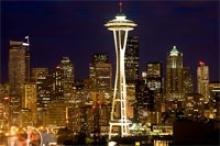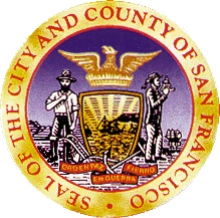Seattle Mayor Uses City Conduit to Connect Pioneer Square
In the campaign for Mayor, Seattle Mayor McGinn frequently proposed the city getting more involved in improving broadband access. Since becoming mayor, he has accomplished little in this area, perhaps due to a City Council that is not convinced it should get involved in broadband.
But the mayor held an event in Pioneer Square to announce a new initiative to start using City assets to expand broadband access:
Seattle Mayor Mike McGinn today laid out a proposal to encourage broadband Internet in a four-block area in Pioneer Square, allowing telecom and cable companies to lease some of the conduit that the city is now placing under First Avenue South. McGinn said it is a small, incremental step in a larger plan to bring high-speed Internet to the parts of the city that need it, tapping into some 500 miles of “dark fiber” that’s not being utilized.Pioneer Square, with a mix of commercial and residential, currently has very poor access to the Internet:
Jeff Strain, the founder of Undead Labs, a 20-person game developer in Pioneer Square, said that fiber-optic cable would dramatically improve his company’s ability to create cutting-edge games. “What we are able to get in Pioneer Square is about half the speed of what you’d be able to get in your home,” said Strain. “So, it is not really suitable for the sort of media rich businesses that we are trying to build down here.”The Mayor's site explains that Jeff Strain was considering moving his company to a location with better access.
We’ve heard from Pioneer Square businesses that internet speeds there are just not what a 21st century economy needs. Jeff Strain, who founded a game development company called Undead Labs, worries that he might have to move his company from Pioneer Square if the “barely adequate” internet service isn’t improved.



